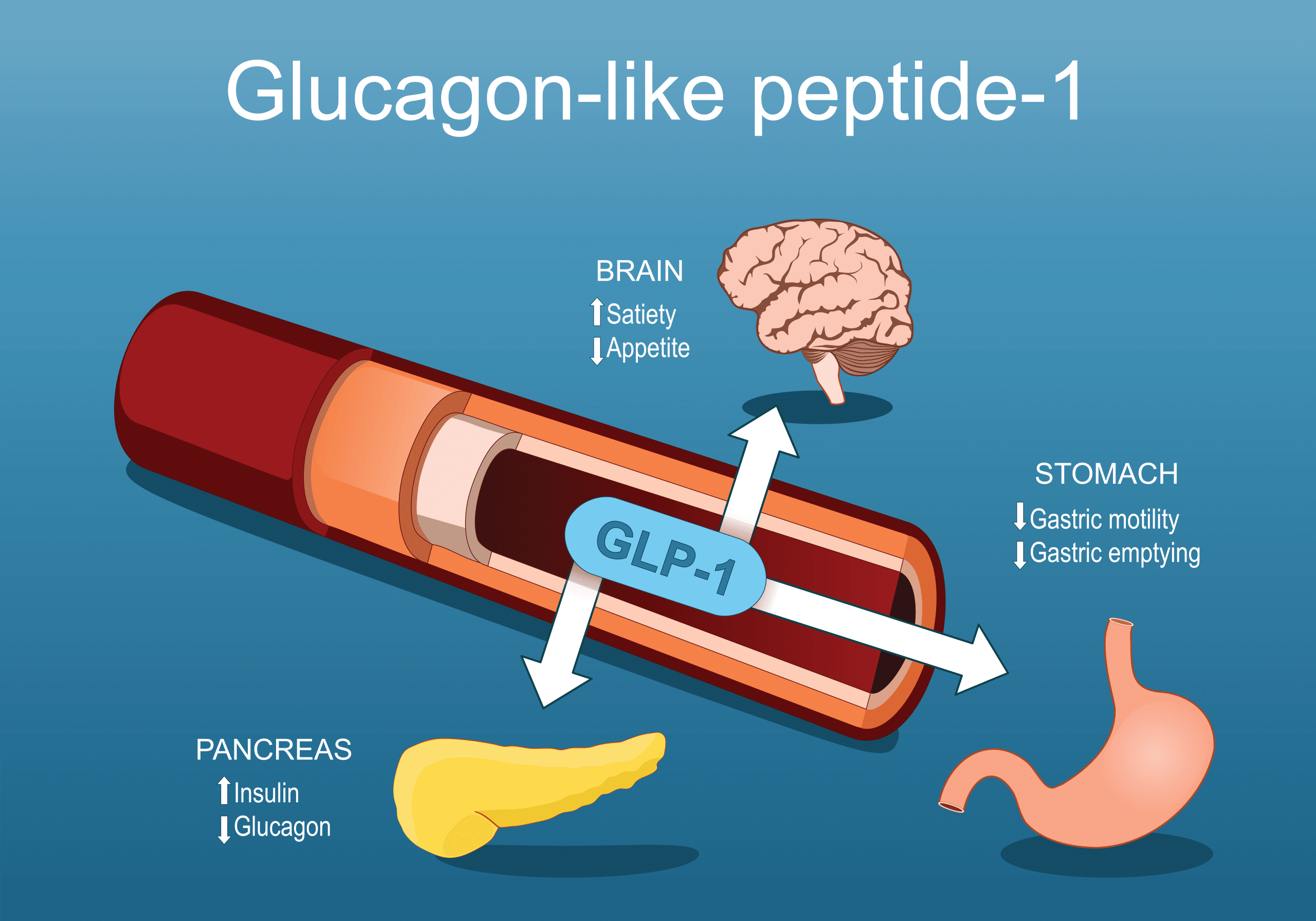Understanding GLP-1 Medications
You’ve likely heard of GLP-1, which has become something of a buzzword in recent years. It’s also probable that you’ve heard the drug names such as Ozempic, Mounjaro, Semaglutide or Tirzepatide, but what exactly are they, and why have they become so popular? In short, these drugs were designed for those who suffer from diabetes. However, they’ve garnered widespread attention for their ability to help individuals lose weight with seemingly little to no effort.
Although these medications have benefits, they also have risks, and anyone considering using them should get clearance from their primary care physician, warns health and beauty expert Laura Lewis-Edwards. She admits to having used a version of GLP-1 medicines herself, Semaglutide, but had to use a different form of the medication due to side effects. “It was just making me really tired, really nauseous,” she recalls. “I was just so uncomfortable. It just was really debilitating to the quality of my life, and it wasn’t really working great for my body.”
How GLP-1 Medications Work
GLP-1 drugs help regulate blood sugar and manage weight. They work by delaying the emptying of the stomach, which reduces hunger, leading to a decreased calorie intake. Laura Lewis-Edwards explains that these medications also block glucagon secretion, which is a hormone that raises blood sugar levels, triggering insulin release from the pancreas. This results in a more stabilized glucose level, supporting weight loss.
 Even as someone well-versed in nutrition and lifestyle best practices, Laura Lewis-Edwards found herself in a battle with her metabolism, causing her to turn to these alternate methods of weight control. This is a common occurrence for women considering their metabolism tends to slow as they age due to hormone imbalances. While using the drug, Laura Lewis-Edwards states she lost twenty pounds and claims it reduced the ache in her joints—something her bloodwork confirmed due to lessened inflammation.
Even as someone well-versed in nutrition and lifestyle best practices, Laura Lewis-Edwards found herself in a battle with her metabolism, causing her to turn to these alternate methods of weight control. This is a common occurrence for women considering their metabolism tends to slow as they age due to hormone imbalances. While using the drug, Laura Lewis-Edwards states she lost twenty pounds and claims it reduced the ache in her joints—something her bloodwork confirmed due to lessened inflammation.
Dr. Jill Wade, DDS, MAGD, of Stonebriar Smile Design in Frisco, Texas weighs in, saying that “any weight loss—especially with these particular medications, [and] decreasing the inflammation alone, which is the core reason why we have disease, the chronic inflammation—is helping this so much. And the reason why you’re seeing the other health benefits…as far as the reduction of diabetes, the reduction in cardiovascular disease, and a clear-thinking mind, joints that don’t feel as achy, it’s all based on the reduction of inflammation.”
Studies have shown that the cardiovascular system also benefits from these drugs by lowering your blood pressure, improving lipid and blood-fat disorders, including fatty liver disease, and diabetic-related neuropathy.
 The Downside: Muscle Loss and Metabolism
The Downside: Muscle Loss and Metabolism
As a dentist, Dr. Jill Wade states that the first place she sees inflammation is in the oral cavity—the mouth. She also recalls seeing a huge spike of inflammation among her patient base due to stress, particularly during the COVID pandemic, and now during a tense political climate. Dr. Wade warns that while the weight loss benefits may seem appealing, there are important considerations of which to be aware, such as having medical supervision by a qualified and licensed professional, receiving the proper dosage and administration, and the possibility of experiencing adverse side effects and even hospitalization.
Among those is another concern: muscle loss. When people lose weight while taking GLP-1 medications, they often lose muscle mass along with fat. This can result in a slower metabolism since muscle tissue plays a critical role in calorie burning. Laura Lewis-Edwards paints an illustration with the image of two people standing side by side. Now, both people weigh the same amount, but because one has more muscle mass—which takes up less space—they may be significantly smaller. The opposite is also true since, as you lose muscle mass, you also lose “those lovely calorie-burning functions,” says Lewis-Edwards. This not only affects metabolism but can also make it harder for you to maintain weight loss long term.
 The Impact on Oral and Sinus Health
The Impact on Oral and Sinus Health
One aspect of GLP-1 medications that isn’t often discussed is their potential impact on oral health. Along with her practice in Frisco, Texas, Dr. Wade operates another dental practice in the Dallas/Fort Worth Metroplex. She highlights an important side effect: acid reflux. “I am seeing a lot of healthy mouths, who have never had cavities before, having that type of reaction for quite a long period of time,” she reveals. She attributes this to stomach acid frequently traveling into the mouth. With prolonged exposure, the acidic environment begins to create cavities and gum disease because “we’re not meant to have that acidic of a mouth,” Dr. Wade continues.
In some cases, this acidity can also make its way into the sinuses, leading to chronic sinus infections. Dr. Wade encourages you to speak to your physician if you experience prolonged discomfort, as chronic acid exposure can have long-term consequences on your oral and sinus health.
To protect your teeth and gums, she urges you to get a toothpaste and mouthwash that has more protection in it, such as increased fluoride. “Xylitol is a huge help to try to neutralize the mouth,” she attests. Also, be sure to get regular dental checkups, hydrate properly, and increase your intake of foods that settle the stomach, such as Greek yogurt, which can help manage these issues.
 A Holistic Approach to GLP-1
A Holistic Approach to GLP-1
While GLP-1 medications can be a helpful tool for managing weight and blood sugar levels, Dr. Wade and Laura Lewis-Edwards emphasize the importance of a holistic approach to your health. Maintaining a balanced diet, getting adequate sleep, managing your stress, and engaging in regular physical activity are all great ways to keep your mind and body in optimal condition. While this may not always be the reality for many, the goal is to incorporate as many healthy habits as possible to support overall wellness.
As for GLP-1 medications, though they’ve shown promising results for weight management and diabetes care, their long-term effects are still being studied. As Dr. Wade points out, it’s essential for you to stay informed and work closely with your health care providers—dentists included—to ensure your health is effectively monitored and that you’re using these medications in a safe manner.
Click here to watch this episode of the Beyond Face Value Show on YouTube.
Visit us on YouTube to hear more about Stonebriar Smile Design and wellness dentistry, and be sure to comment, like, and subscribe.




